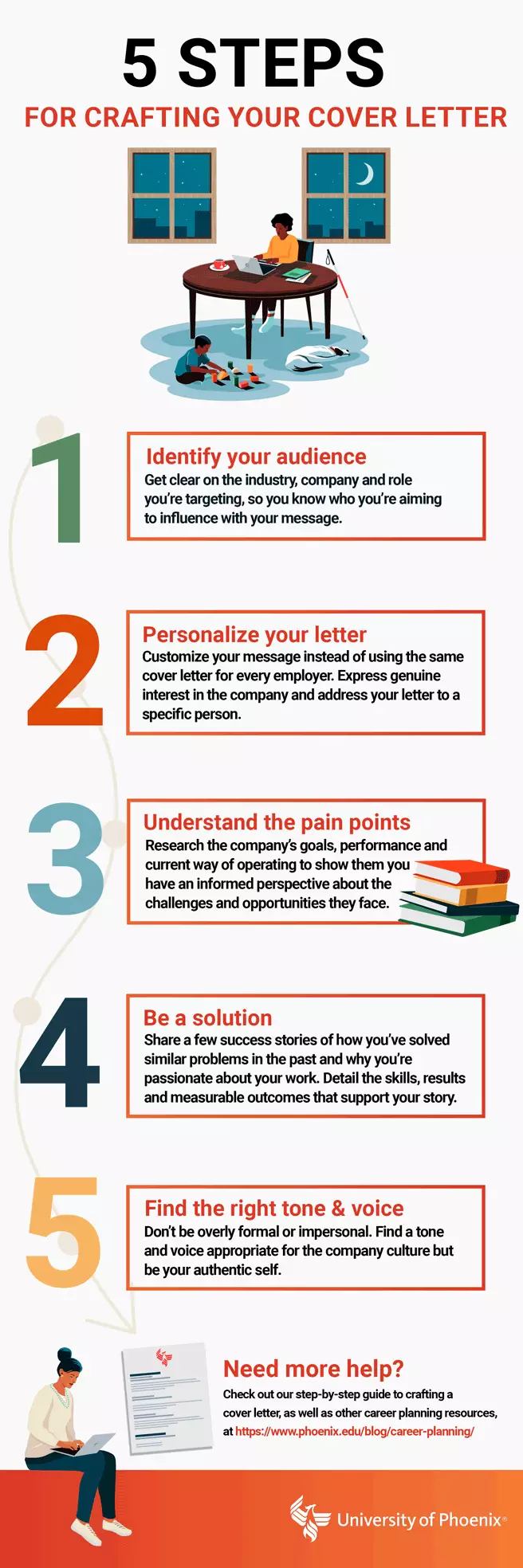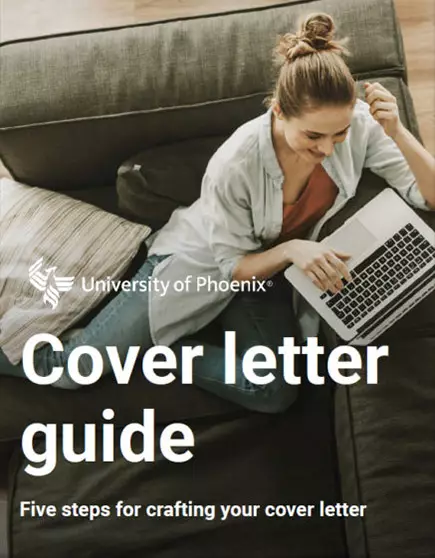Job hunting? Don’t forget the cover letter
By Lilia Ortiz
At a glance
- To craft a great cover letter, make sure to highlight your unique accomplishments, skills and credentials.
- Don't use the same cover letter for each job you apply to. Instead, personalize your letter based on your target audience. Make sure you proofread your cover letter before hitting send.
- Cover letters should showcase how you are a solution to a potential employer's pain points. Use the right tone and voice to express enthusiasm and authenticity.
- If you need cover letter help, download our step-by-step Cover Letter Guide on how to craft a cover letter, which includes additional tips and examples.
How to craft a cover letter
You’ve updated your LinkedIn profile, spent hours in front of the mirror polishing your interview skills and crafted a strong resumé. You’re ready to start job hunting, right? Not so fast! There’s little point in submitting your resumé if you don’t have a cover letter that showcases your individuality and makes you stand out among the competition, according to Indeed.
A cover letter helps a potential employer imagine you as a person and not just another resumé. It also highlights your unique accomplishments, gives you the opportunity to add additional information about your skills and expresses your enthusiasm for the position.
In other words, while it might be tempting to fast-track this step, taking the time to write one (even if the application says it’s optional) can make a huge difference when applying for a job. Read on to learn how to craft a powerful one.
For more tips, read our Cover Letter Guide, which includes structure and format examples.
Click the image below to download our step-by-step guide to writing an effective cover letter.
1. What’s the difference between a resumé and a cover letter?
Since your resumé and cover letter are vital to landing an interview, both documents should align without being a direct match.
For example, your resumé should focus on your experience, providing hard facts such as dates, locations and job responsibilities. Your cover letter should include accomplishments that highlight the most important skills mentioned in a job posting. You can also think of your resumé as a stand-alone document that confirms the content in your cover letter.
It’s a good idea to have a solid resumé before you start writing a cover letter. Check out our career guide on how to write an effective resumé if you still need to complete this part of the job search process.
2. Make each cover letter unique
Each cover letter you write should be finely tuned to match what an employer is looking for in a candidate (you can find this information in the job description and by researching the employer’s mission, culture and goals). That means you can’t write a one-size-fits-all letter and call it a day. Every job you’re applying to is unique, which means every cover letter must be customized.
That being said, keep in mind that you don’t need to meet every requirement in a job description to apply. Often, these postings are a complete wish list of what an employer would want in an ideal employee.
Also, don’t feel discouraged if you come across postings that seek years of on-the-job experience. Instead, use your cover letter to draw parallels between what an employer is seeking and your own skills and experience. Some other great anecdotes to include in a cover letter are moments of stellar performance, relevant examples of work or school projects you’ve completed and any personal connections you might have with the company or a current employee.
3. On your mark, get set, write!
Letter writing is considered a lost art by some, so when it comes to writing a cover letter, you might be wondering where to start.
Think of it as a short story of your most outstanding moments in the workforce or as a professional. There should be a logical beginning, middle and end with an emphasis on clarity and brevity. Now’s not the time to ramble on about how you once helped rescue a kitten out of a tree when you were 13.
Additionally, a cover letter has five main components: a heading, greeting, introductory paragraph, main body paragraph and closing paragraph. Each part has its specific purpose and best practices. For example, the header should match the header you used on your resumé, and always make sure the greeting addresses a specific company contact or hiring manager.
Pro tip: If you can’t figure out whom to address your cover letter to, try searching on LinkedIn for a hiring manager’s name. You can also try double-checking the job posting or looking on the company’s website. Still can’t find a name? Go with “Dear Hiring Manager” over “To Whom It May Concern,” which can be considered archaic.
Need additional career support? Visit the University of Phoenix YouTube channel to hear 5 tips for crafting a cover letter from UOPX career advisor Jason Robert.
4. It’s all about the format
Various formats are suitable for different situations. The important thing to remember is to choose a format that best suits the job you’re applying for.
- The paragraph format mentioned earlier is best for explaining your skills and experience in more detail.
- A bulleted cover letter is a great way to quickly address why you’re a great candidate for a position.
- A T-format cover letter involves breaking down three to five job requirements in a job description and explaining why you’re qualified.
- The email format is like the paragraph format but contains shorter paragraphs and bullets, so it’s easier to read on smartphones and smaller screens.
- A letter of interest is a perfect way to get yourself noticed if you want to work for a specific company that doesn’t have an open job posting.
Still having a hard time visualizing what a cover letter should look like? This career guide includes samples that show the different formats.
5. Proofread, proofread, proofread
Just as with your resumé, proofreading is essential. Before you send your cover letter, make sure it’s free of errors and properly formatted. But don’t just check for grammar and spelling mistakes.
You also want to make sure you leave out sensitive information. This includes your marital status and any other details about yourself that aren’t directly related to the position.
Use your best judgment when it comes to what to include. If you’re not sure about something, consider getting a second opinion from a friend or family member. Or err on the side of caution and leave it out. You could also ask a professional to look your resumé over and use it as a template for future versions.
No matter which format you select, make sure your cover letter paints you in the best light. After all, first impressions matter, so make sure yours is a good one.

Need additional career support? As an active University of Phoenix student or a recent graduate you have a team of advisors eager to help. Check out Career Services for Life™.
read similar articles
5 Tips for Using Social Intelligence to Succeed in Business
Career Support
April 19, 2023 • 6 minutes









